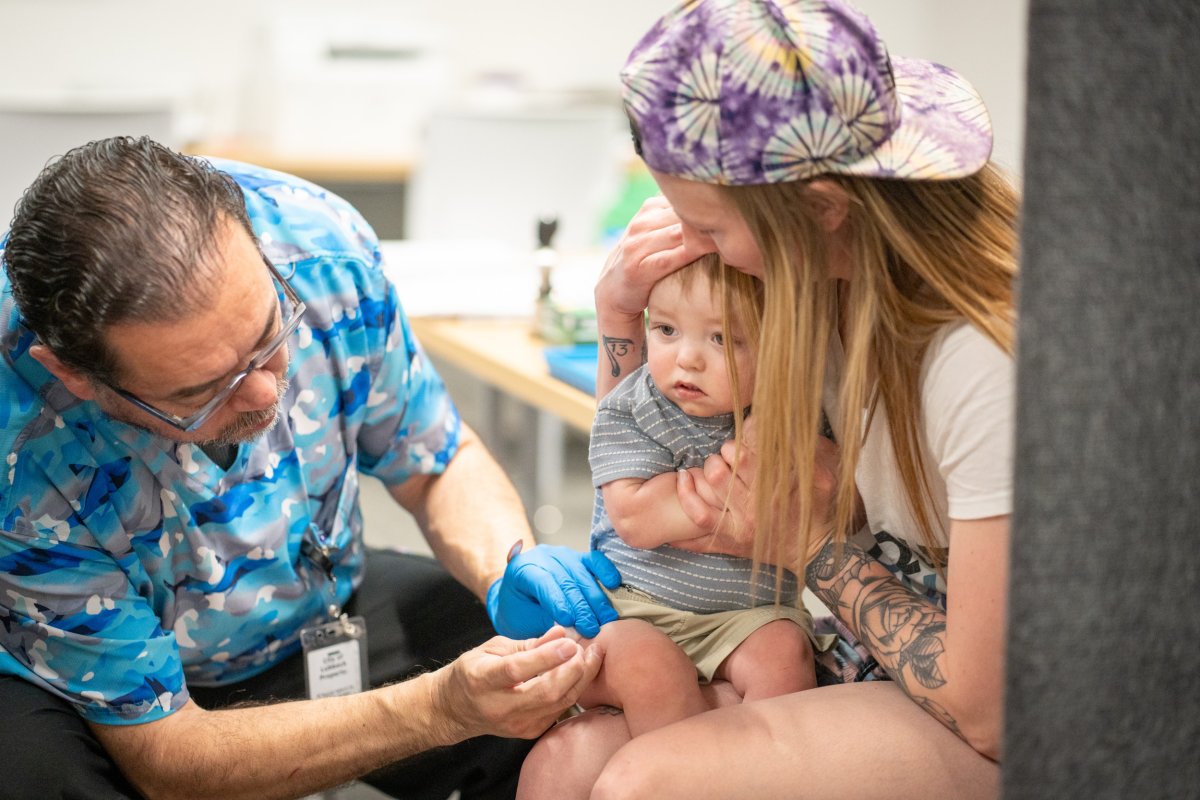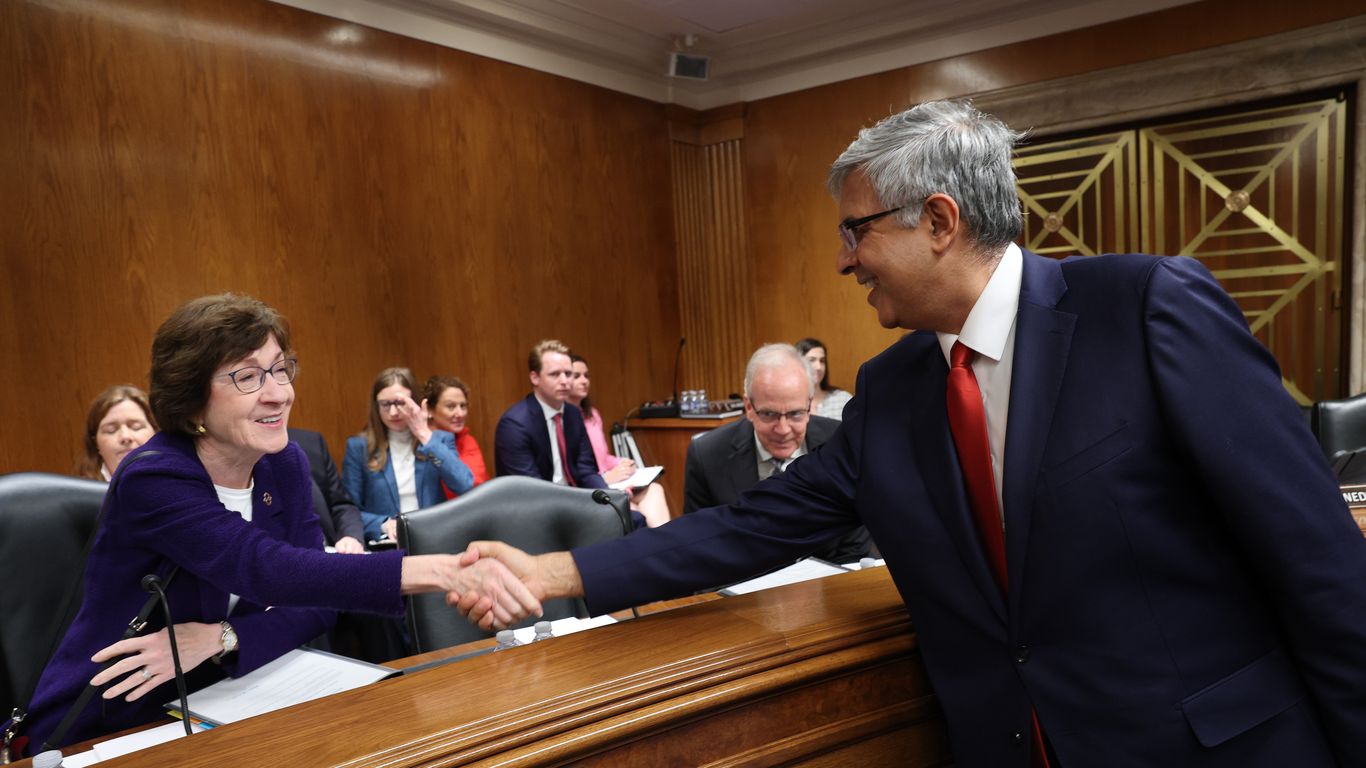Health officials have confirmed measles exposures at several major U.S. airports in recent months as infected travelers passed through terminals across the country.
Newsweek has reached out to U.S. Centers for Disease Control and Prevention (CDC) for comment via email on Sunday.
Why It Matters
There are currently a total of 1,197 confirmed measles cases in the U.S. across 35 states. The disease is impacting a range of ages, and predominantly those who are unvaccinated, according to the CDC. There have been three confirmed deaths from measles this year.
The growth in measles cases over the past few months comes as Health and Human Services (HHS) Secretary Robert F. Kennedy Jr. continues to deliver an inconsistent message about measles as well as pushing falsehoods about the measles vaccine and its makeup. Earlier this month, he removed all 17 scientists from the CDC vaccine advisory committee.
The CDC encourages all international travelers to be "fully vaccinated against measles."
What Is Measles?
Measles is a viral disease known for often causing a rash made up of large, flat spots and raised bumps that starts on the face and neck and spreads down the body. It is is highly infectious.
The rash is preceded by around three to five days by symptoms including conjunctivitis, dry cough, fever and runny nose and watery eyes.
According to the CDC, "measles can cause serious health complications, especially in children younger than 5 years of age. Common complications are ear infections and diarrhea. Serious complications include pneumonia and encephalitis."
What To Know
Several major U.S. airports, most recently Dulles International Airport in Washington D.C., have recently reported confirmed measles cases linked to infected travelers.
In March, an individual who passed through Los Angeles International Airport was confirmed to have measles.
A month later, health officials confirmed a measles case involving a traveler who passed through Seattle-Tacoma International Airport and stayed overnight at a nearby hotel. In May, the Colorado Department of Public Health and Environment reported a similar incident at Denver International Airport where an infected traveler may have exposed thousands after arriving, spending the night at a hotel, and returning to the airport the next day.
Other cases have been reported at Logan International Airport and Chicago O'Hare. Airport exposures are especially concerning due to the high number of people an infected traveler may encounter—in terminals, in transit, and on flights.
In February, Texas experienced its biggest measles outbreak in about three decades. West Texas saw an influx of almost 50 cases, and health officials attributed the drastic uptick to a close-knit, under vaccinated Mennonite community. Cases have continued to rise in the months since, leading to hospitalizations and the deaths of two children.
In 2000, the World Health Organization (WHO) declared that the measles had been eliminated from the U.S. However, vaccination rates have recently been falling in the U.S.—a problem that worsened during the COVID-19 pandemic. Prior to the vaccine, the CDC estimates 48,000 people were hospitalized and 400–500 people died annually in the U.S.
What People Are Saying
Dr. Mathew Kiang, assistant professor in the Department of Epidemiology and Population Health at Stanford University, said in an April statement following his study: "With measles, we found that we're already on the precipice of disaster. If vaccination rates remain the same, the model predicts that measles may become endemic within about 20 years."
The U.S. Food and Drug Administration (FDA) says on its website: "Vaccines have prevented countless cases of disease and disability and have saved millions of lives. Ensuring the safety and effectiveness of vaccines is one of FDA's top priorities. FDA's Center for Biologics Evaluation and Research (CBER) ensures that FDA's rigorous scientific and regulatory processes are followed by those who pursue the development of vaccines. Vaccine development is a complex science.
Dr. Bruce A. Scott, president of the American Medical Association, said in a June statement: "For generations, the Advisory Committee on Immunization Practices (ACIP) has been a trusted national source of science- and data-driven advice and guidance on the use of vaccines to prevent and control disease...Today's action to remove the 17 sitting members of ACIP undermines that trust and upends a transparent process that has saved countless lives...With an ongoing measles outbreak and routine child vaccination rates declining, this move will further fuel the spread of vaccine-preventable illnesses."
Lara Anton, a spokesperson for the Texas Department of State Health Services, previously told Newsweek: "[Texas Department of State Health Services] DSHS has been encouraging people to get vaccinated if they are not immune to measles because it is the best way to prevent illness and stop the virus from spreading."
What Happens Next?
The CDC still recommends individuals to be fully vaccinated against measles and warns people to not travel if feeling sick or developing symptoms.










 English (US) ·
English (US) ·